A car’s anti-lock brake system (ABS) automatically modifies the hydraulic pressure that develops in the brake lines. This is done in accordance with how much the wheels are slipping to prevent wheel lockup when heavy brakes are applied.
A car’s ABS sensors are significant as they play an integral role. The purpose of this system is to convey the wheel speed data to the ABS panel, where it will be processed to direct the car’s operation.
However, can a bad abs sensor cause vibration?
The truth is when the ABS sensor in a car malfunctions, it may cause a variety of strange events, with vibration being one of them. Moreover, when the sensors are at fault, it would provide illogical information to the ABS console, leading to several issues.
Well, before determining if an awful ABS sensor would cause a car to vibrate or not, let’s learn about it minutely.
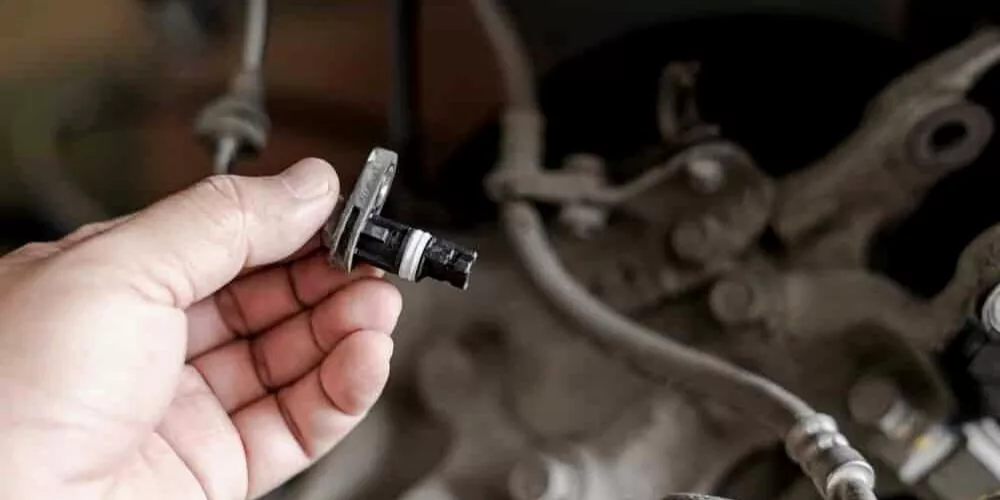
Contents
Can a bad abs sensor cause vibration? (My Take)
Yes, a bad ABS sensor will indeed create vibration until the automobile has been repaired to replace it. With a defective ABS sensor, it may feel a little harder to press the brake pedal when the ABS is on.
Moreover, you’ll also face difficulty in shifting. You will also immediately notice a warning light on the dashboard if your ABS sensor is damaged.
The illumination of this light will not reveal the exact cause behind the ABS’s damage. Also, it won’t identify the specific sensor that might be malfunctioning.
Although it won’t notify anything precisely, never disregard this signal as it could delay the diagnosis of the problems.
How do you test an ABS sensor?
To test an ABS sensor, you will require a multimeter. A multimeter is a device built of three primary components: the display, ports, and the selection knob.
The display of a multimeter frequently shows 4 digits and can also display negative readings. Now, to test an ABS sensor, follow these simple steps.
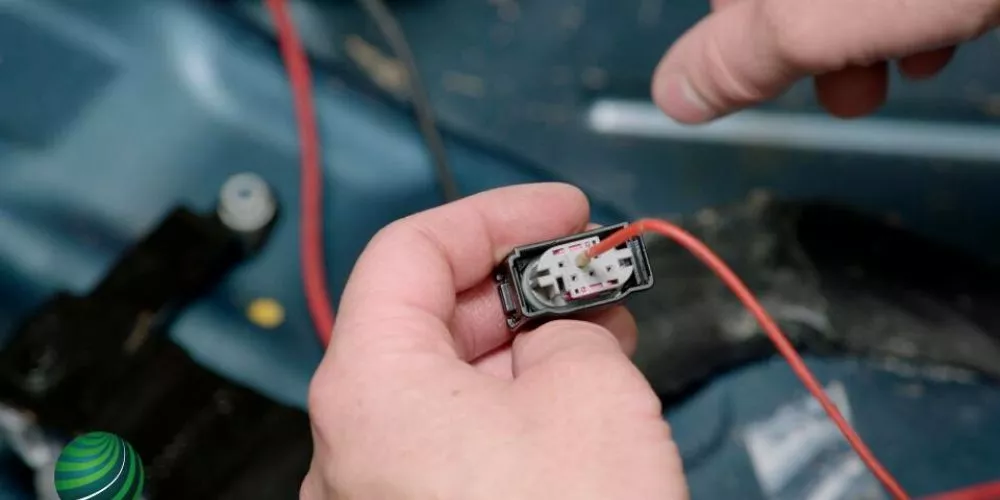
- First, remove the ABS sensor’s lid safely to disconnect it from the wiring. Following this, use a brake-cleaner to clean it.
- Select ohms on your multimeter and consider adjusting the knob accordingly.
- Rotate the zero-adjust knob to set your multimeter to display zero.
- Set the probe leads on the ABS sensor pins. Well, it doesn’t matter on which end you place the leads, as resistance is non-directional.
- To get the right reading, place the leads as far as possible.
- Note the ohm reading and compare it with the sensor’s typical ohms value.
If the value measured is less than 10%, separate the two. However, if not, consider changing your ABS sensor. You may even need your ABS sensor by switching to voltage reading mode.
Attach the probes to the ABS sensors and rotate the wheel to obtain the voltage reading. Now, if no value gets displayed on your multimeter’s display area, your ABS is broken. Change it!
What are the signs of a bad ABS speed sensor?
Your ABS may perform poorly if a sensor fails. Not to mention, the other systems that depend upon ABS data will also be at fault. The signs of a bad ABS speed sensor are:
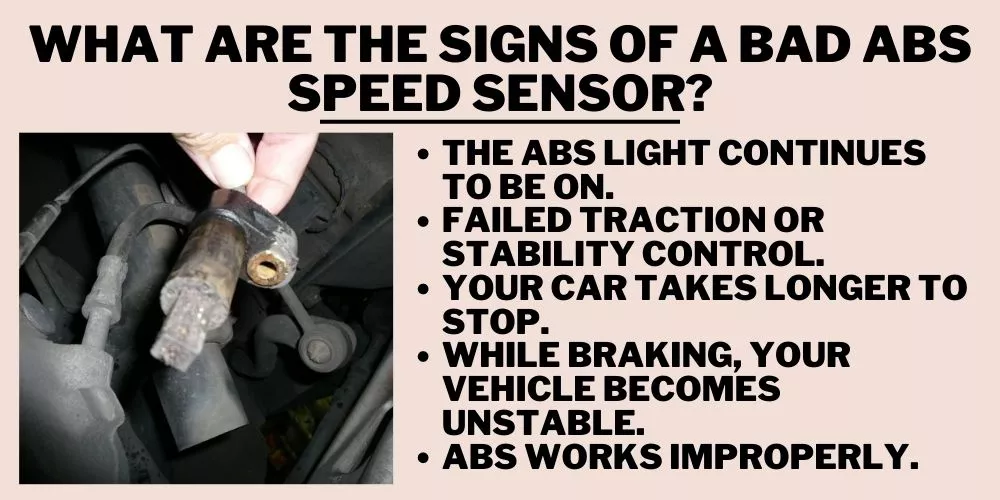
The ABS Light continues to be on
Just like the engine lights on your car, ABS lights are too alert when something goes wrong with your ABS. You’ll see this light flash briefly and stay on continuously throughout the trip if an ABS sensor fails.
Failed traction or stability control
Apart from the anti-lock brakes, other systems are also dependent on the ABS wheel speed sensors. Stability control systems also use the data from the ABS sensor for hill-start assistance and much more.
Therefore, when the ABS sensors fail, these systems stop functioning. They remain disabled until a new sensor is installed.
Your car takes longer to stop
To stop your car quickly and safely, decent brake pads are essential. Moreover, to stop fast when braking hard, the functions of the ABS should be in conjunction with the rest of the braking system.
Therefore, it’s a warning sign if your car takes too long to stop.
While braking, your vehicle becomes unstable
To avoid lock-up and traction loss during severe stops, the ABS sensor modulates brake pressure based on the information it gathers. Now, if this process is not performed properly, your ABS will certainly damage.
ABS works improperly
An ABS that operates intermittently is another typical sign of ABS sensor failure. If this is the case, consider changing it at once, as an inconsistent ABS might jeopardize your vehicle’s safety.
By recognizing the above symptoms of ABS sensor failure, you can easily analyze your car and fix the issues.
Can ABS cause a vibration when braking?
Yes, if the ABS is on, it can even cause a vibration when braking. This is because your brakes are pumped repeatedly and much more quickly than any experienced racing driver can manage when the ABS is on.
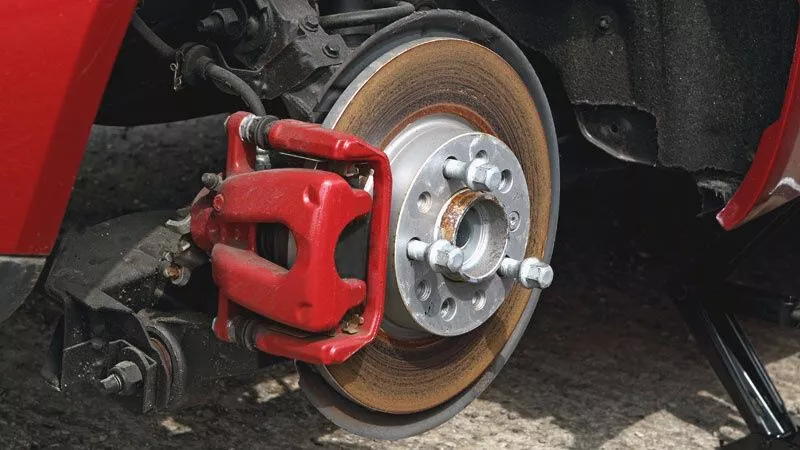
Well, it’s OK for you to sense a pulse, and there’s nothing to worry about. Moreover, this sudden jerk during braking is beneficial for your vehicle. This prevents the tires from locking up and causing an unpredictable slide.
What can a faulty ABS sensor cause?
The ABS sensors control numerous things. The gear is responsible for communicating analog signals to the traction control systems. If the ABS sensors are at fault, the control systems will also read erroneous signals and respond awfully.
This can even result in the loss of stability and other ABS problems. To dig a bit deeper into the question, we get,
ABS light will stay on
The ABS icon on your car’s dashboard will turn on if an ABS sensor malfunctions. Typically, this is the first symptom of an inaccurate ABS sensor.
Your brakes will stop responding quickly
If your ABS sensors are faulty, you’ll observe that it takes longer for your brakes to react. Besides, when you depress the pedals, you might also detect a pumping sound from your brakes.
All these occur when a faulty ABS sensor sends incorrect signals to the control module. However, if the sensor is working properly and the module isn’t, you might lose a lot of traction while driving.
Can you drive with a bad ABS sensor?
Although it is not advised, driving with a damaged ABS sensor is possible. When the ABS sensors are damaged, the anti-lock braking system in your car won’t function properly.
Well, driving should always be done with safety, and therefore, if you have a bad ABS sensor, it’s better to get it replaced right away.
Why would your car shake with the ABS sensor light on?
Your car shakes whenever the ABS sensor light is on because it tries to maintain control even on slick surfaces. However, you will need to pump the brakes several times in quick succession to stop the vibration.
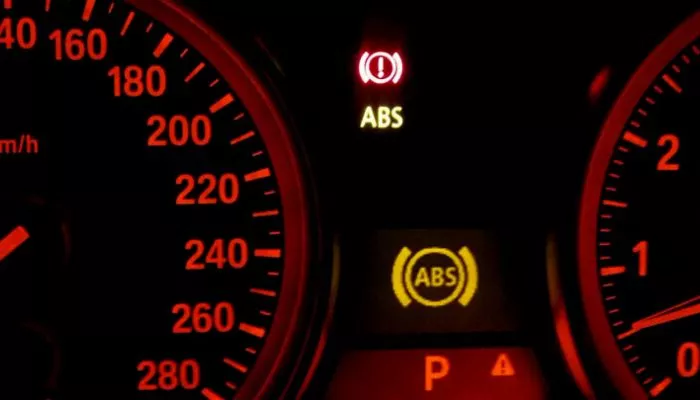
Apart from this, the bad alignment of your vehicle may also be the cause of vibration. The car may tremble when accelerating or decelerating if the wheels are out of alignment. However, your car may also shake due to loose nuts, faulty brake calipers, and several other factors.
Can bad brake pads cause the ABS light to come on?
No, your ABS light is not always turned on by worn brake pads. Moreover, your brake pads must bear on whether your ABS will work.
Always remember that the ABS only regulates the force applied to your brakes. Therefore, it should control pressure even if the brake pads are bad.
However, it’s a yes for the least 1% of cases. Here, the braking fluids become low due to the worn pads, and the ABS light turns on.
Does ABS cause shaking?
Yes, vibrations can be caused by a defective ABS sensor unless the car has been repaired to replace it. In general, even though they are two independent systems, a soft break pedal mat also points to an issue with the ABS sensor.
Frequently Asked Questions (FAQs)
Is the wheel speed sensor the same as the ABS sensor?
Yes, since wheel speed sensors were initially employed in vehicles when ABS was introduced, they are frequently referred to as the same.
Does the ABS sensor affect acceleration?
Although rare, an ABS sensor is not known to affect your vehicle’s acceleration. This is because the traction control system uses the same ABS sensors. Additionally, as a safety, it can restrict the engine power if the wheel reports are incorrect.
What does it mean when your car shakes over 60 mph?
When traveling around 60 mph per hour, the shaking begins. Well, this is mainly due to tire-related issues. The steering wheel often trembles if the tires are out of balance at 55 mph or above.
However, as you go faster, it starts to get better.
How much does it cost to replace the ABS sensor?
Depending on your car’s model and labor expenses, the repair of an ABS sensor ranges from $200 to $400 per sensor. The wheel speed sensor will cost you around $150, and the labor will charge you between $100 to $250.
Conclusion:
A malfunctioning ABS sensor is bound to bring vibrations. Well, it’s probable that your ABS sensors are damaged if you experience any of the symptoms mentioned in the article.
Although it doesn’t directly affect your car’s engine, fixing them immediately is the best option to avoid stalling.


